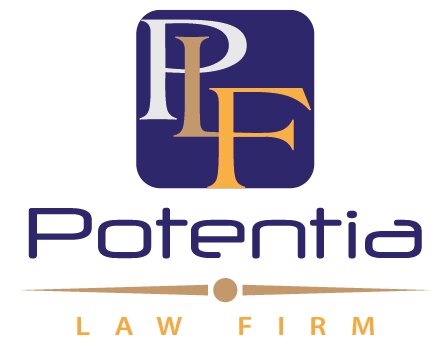Best Landlord & Tenant Lawyers in Dokki
Share your needs with us, get contacted by law firms.
Free. Takes 2 min.
Free Guide to Hiring a Real Estate Lawyer
List of the best lawyers in Dokki, Egypt
1. About Landlord & Tenant Law in Dokki, Egypt
Dokki is a commercial and residential area in Giza Governorate near Cairo, with many apartment buildings and small commercial units. Rent relationships here follow national laws, not district rules. The core framework comes from the Rent Law for urban real estate and the Egyptian Civil Code’s lease provisions.
In practice, tenants and landlords in Dokki typically sign written leases for one year or longer, with deposits and service charges negotiated in the contract. Local enforcement can involve civil courts or mediation depending on the dispute. Understanding the national rules helps residents navigate local practices and court expectations.
Recent government guidance in Egypt emphasizes mediation and civil court channels for tenancy disputes, with an increasing focus on formal documentation.
For residents of Dokki, this means a well drafted written agreement, clear notice periods, and documented repair obligations are essential. A qualified attorney can help tailor contracts to reflect local norms while remaining compliant with national law.
2. Why You May Need a Lawyer
Below are concrete scenarios that commonly require legal counsel in Dokki, Egypt. Each reflects real situations tenants or landlords may face in this district.
- Eviction notices with contested grounds. A landlord may claim non payment or breach of contract, while a tenant argues the landlord failed to make required repairs. An attorney can evaluate grounds and pursue proper channels in court or through mediation.
- Disputes over rent increases under the Rent Law. If a landlord raises rent beyond legal limits or without a formal lease renewal, a lawyer can assess legality and negotiate a fair adjustment.
- Security deposit disputes after move out. Tenants may dispute deductions for repairs or cleaning, and lawyers help recover lawful portions or document charges with receipts and photos.
- Maintenance and habitable conditions complaints. When a landlord fails to fix essential repairs, counsel helps file formal complaints and pursue remedies through the courts or regulatory bodies.
- Lease renewal and contract termination guidance. If you want to renew, renegotiate terms, or terminate a lease due to relocation or first occupancy, a lawyer clarifies notice periods and legal consequences.
3. Local Laws Overview
Two to three statutes most often cited in Dokki when dealing with landlord and tenant matters are named below. They form the backbone of tenancy rights, obligations, and remedies in urban real estate across Egypt.
- Law No. 49 of 1977 (Rent Law) on urban real estate - This is the primary statute governing rents, evictions, and lease renewals for urban properties in Egypt. It shapes how rent is set, how increases may occur, and the process tenants must follow to contest evictions. Effective since 1977, with amendments in later years to update procedures and protections.
- Egyptian Civil Code (Law No. 131 of 1948) - Contains general provisions on contracts and leases, including tenant and landlord obligations, contract formation, and remedies for breach. These provisions operate alongside the Rent Law to regulate everyday tenancy relationships.
- Amendments and regulations related to urban rents - In the 2000s and 2010s, amendments to the Rent Law and related regulations adjusted procedures, notice requirements and rent adjustments in certain urban contexts. These changes affect how leases are renewed and how disputes are resolved.
For authoritative details, see the official government resources and legislation databases referenced below.
Egyptian authorities emphasize structured dispute resolution, contract clarity, and documentation in tenancy matters to improve outcomes in districts like Dokki.
Key terms you may encounter include the landlord's obligation to maintain habitable conditions, tenant obligations to pay rent on time, and the right to pursue eviction or relief through courts when a contract is breached.
Official government portals and legislation databases provide the text of these laws and any updates. See the resources section for direct links to primary sources.
4. Frequently Asked Questions
What is a tenancy contract in Dokki, Egypt?
A tenancy contract sets your rights and duties as a tenant and governs rent, term, and renewal. It should specify who maintains the property and how repairs are handled.
How do I start eviction proceedings in Dokki?
Begin by sending formal written notice per the lease terms and law. If the issue persists, file a claim with the competent civil court or pursue mediation as encouraged by authorities.
What documents should I gather before meeting a landlord?
Collect your lease, ID documents, recent rent receipts, the security deposit record, and any repair requests or notices you have issued or received.
How much can rent be increased legally in Dokki?
Rent increases typically follow the Rent Law framework. A lawyer can determine if an increase complies with the law and the lease terms.
Do I need a lawyer to renew a lease in Dokki?
Not always, but a lawyer can help negotiate terms, check for legal compliance, and ensure the renewal aligns with current tenancy regulations.
Is a written contract required by law in Egypt for rents?
Written leases are strongly recommended and often required to prove terms in disputes. Verbal agreements carry higher risk in Dokki’s market.
Can a landlord enter the property without notice in Dokki?
Generally not. Landlords must respect notice requirements and tenant quiet enjoyment rights, except in emergencies defined by law and the lease.
How long does the eviction process take in Dokki?
Timeline varies by case complexity and court backlog. Some cases resolve within months, while others may extend longer depending on mediation outcomes.
What is the security deposit typical in Dokki?
Security deposits often range from one to two months’ rent, but the exact amount depends on the contract and negotiations with the landlord.
Where can I file a tenancy dispute in Dokki?
Disputes are typically filed in the competent civil court with jurisdiction over the district of Dokki or Giza Governorate caseloads.
Why should I hire a landlord-tenant attorney from Dokki?
A local attorney understands Dokki’s building practices, landlord networks, and court patterns. They can tailor strategies to maximize your chances of a favorable outcome.
Can a tenant sublease a unit in Dokki legally?
Subleasing depends on the lease terms and consent from the landlord. A lawyer can review the contract and advise on compliant subleasing arrangements.
5. Additional Resources
Here are official resources that provide authoritative information on tenancy rights, laws, and procedures in Egypt.
- - Official information on civil law procedures and dispute resolution options. https://moj.gov.eg
- - Central hub for laws, regulatory updates, and citizen services. https://www.gov.eg
- - National statistics and reports that can inform housing market context. https://www.capmas.gov.eg
6. Next Steps
- Determine if you need immediate remedies or long-term contract changes. (1-2 days)
- Assemble the lease, notices, receipts, and photos. (2-5 days)
- Look for lawyers who list landlord-tenant disputes and Cairo/Giza practice. (3-7 days)
- Confirm bar membership and request a written fee estimate. (1-2 weeks)
- Include contract specifics, deadlines, and desired outcomes. (1-2 weeks)
- Choose based on clarity of explanation, not only cost. (1 week)
- Establish a timeline for filings or negotiations. (2-3 weeks)
Lawzana helps you find the best lawyers and law firms in Dokki through a curated and pre-screened list of qualified legal professionals. Our platform offers rankings and detailed profiles of attorneys and law firms, allowing you to compare based on practice areas, including Landlord & Tenant, experience, and client feedback.
Each profile includes a description of the firm's areas of practice, client reviews, team members and partners, year of establishment, spoken languages, office locations, contact information, social media presence, and any published articles or resources. Most firms on our platform speak English and are experienced in both local and international legal matters.
Get a quote from top-rated law firms in Dokki, Egypt — quickly, securely, and without unnecessary hassle.
Disclaimer:
The information provided on this page is for general informational purposes only and does not constitute legal advice. While we strive to ensure the accuracy and relevance of the content, legal information may change over time, and interpretations of the law can vary. You should always consult with a qualified legal professional for advice specific to your situation.
We disclaim all liability for actions taken or not taken based on the content of this page. If you believe any information is incorrect or outdated, please contact us, and we will review and update it where appropriate.









